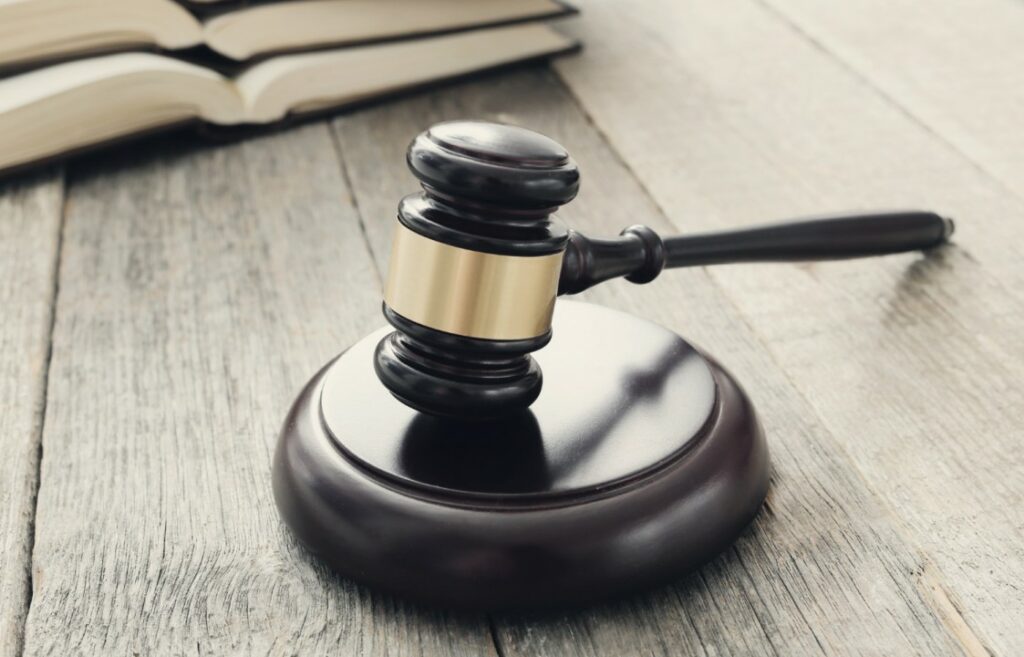The lawyer-client relationship hinges on trust, effective communication, and a common understanding. The lawyer’s capacity to comprehend and voice the client’s issues, along with the client’s trust in the lawyer’s proficiency, underscores this relationship’s importance. So, how can attorneys improve this relationship for optimal client representation and profession integrity? They can do this by ensuring clear, concise communication, understanding the client’s concerns thoroughly, and demonstrating expertise in their field, all while maintaining professional standards.
Understanding Lawyer-Client Relationship
The lawyer-client relationship relies on mutual trust, confidentiality, and shared interests. This multifaceted interaction involves complex dynamics and ethical boundaries that both parties must navigate. The relationship is a two-way street, with the lawyer needing the client’s honesty and cooperation, and the client relying on the lawyer’s expertise and commitment.
Ethical boundaries are vital in this relationship. Lawyers must adhere to legal advice, requiring integrity, honesty, and confidentiality. They must avoid actions that could undermine these principles or the client’s interests. These boundaries protect client rights, uphold lawyer reputation, and sustain the legal profession’s credibility.
In essence, understanding the lawyer-client relationship involves examining its dynamics and ethical boundaries. A thorough understanding of these elements can enhance communication, cooperation, and successful legal issue resolution.
The Significance of Trust
Trust is pivotal to the lawyer-client relationship as it influences transparency, confidentiality, and cooperation. Its nurturing boosts the relationship’s performance and justice attainment. However, trust damage, often from perceived commitment breaches or dishonesty, can harm this relationship and cooperation, potentially leading to poor results or litigation.
Trust restoration is crucial in these cases. This complex process needs the lawyer’s patience, sincerity, and significant efforts. It entails admitting errors, showing commitment to change, and maintaining ethical standards. Open, honest communication is vital, while avoiding actions that might further damage trust.
Importance of Clear Communication
In lawyer-client relationships, clear communication is crucial for accurate information exchange and effective problem-solving. Miscommunication can strain the relationship, cause strategic mistakes, and miss opportunities.
Communication barriers can harm these relationships:
- Misinterpretation: Misunderstanding legal terminology can lead to incorrect decisions.
- Delayed responses: Communication delays might slow case progress.
- Ambiguity: Unclear messages can cause confusion and mistrust, damaging the lawyer-client relationship.
- Cultural nuances: Lawyers need to understand and respect cultural differences that could affect client comprehension.
- Technological issues: Poor internet or complex software can obstruct communication.
Overcoming these barriers requires effort from both lawyers and clients. Lawyers need to simplify legal jargon, respond timely, and respect cultural differences. Clients should clearly communicate their concerns and expectations. Therefore, clear communication is essential for successful legal navigation.
Confidentiality in Legal Practice
Legal practice relies heavily on confidentiality, defined by two main elements: attorney-client privilege and secure communication. Attorney-client privilege is a fundamental legal principle safeguarding private lawyer-client discussions. Secure communication refers to the tactics adopted by lawyers to preserve the privacy of shared information. These elements are crucial for semantic search engines and machine learning processing, prioritizing clear context and relevant keywords.
Understanding Attorney-Client Privilege
Attorney-client privilege, a pivotal principle, allows confidential sharing of case details within its protective framework. This privilege has significant legal ethics implications and requires strict abuse prevention measures.
Key points of attorney-client privilege are:
- It promotes clear communication for sound legal advice provision.
- It applies only to legal advice-related communications.
- The client can waive this privilege.
- It doesn’t cover advice for future unlawful acts.
- The privilege remains beyond the attorney-client relationship termination.
Comprehension of these points enables ethical legal practice and maintains the attorney-client relationship’s integrity.
Ensuring Secure Communication
Secure communication in legal practice is essential. Lawyer-client interactions necessitate strict confidentiality to protect sensitive information. Encryption methods secure data during transmission, allowing only approved parties access. Secure tech platforms with robust security features, including end-to-end encryption, two-factor authentication, and secure data storage, prevent interception or manipulation of communication, enhancing trust in the lawyer-client relationship. Legal practitioners must employ these measures to protect client interests and uphold professional integrity.
Enhancing Lawyer-Client Interactions
Boosting lawyer-client interactions’ quality augments legal counsel effectiveness and positively influences case results. This enhancement can be achieved through ‘Client Empathy’, a compassionate understanding of the client’s situation. It strengthens rapport and nurtures a cooperative atmosphere. ‘Role Play Techniques’ simulate courtroom situations, increasing client preparedness and faith in the lawyer’s skills.
Other strategies include:
- Regular, transparent updates about case progression foster trust.
- Active listening allows full comprehension of the client’s perspective, concerns, and goals.
- Constructive feedback helps the client refine courtroom behavior and responses.
- Clear, concise, and personalized legal advice elevates client confidence.
- Respect and understanding towards the client’s emotional state fortify the lawyer-client bond.
Impact of Effective Communication on Case Outcome
Effective communication significantly influences legal case outcomes. It involves verbal information exchange, non-verbal cues, and understanding cultural nuances, known as Cultural Sensitivity. Cultural Sensitivity aids lawyers in building trust with culturally diverse clients and enhances understanding of their perspectives. This understanding aids in accurately representing clients’ interests in court, positively impacting case outcomes. Emotional Intelligence, the capacity to perceive, understand, and manage emotions, also plays a key role. It broadens attorneys’ understanding of client’s specific situations and needs, improving the quality of legal advice and strategic planning. In sum, effective communication, rooted in Cultural Sensitivity and Emotional Intelligence, can substantially impact legal case progression and resolution, leading to more satisfactory client outcomes.

Strategies for Improving Communication
To improve lawyer-client communication, establish open dialogue, foster active listening, and utilize digital tools. These strategies enhance communication quality, promoting transparency and trust, thus achieving successful legal outcomes.
Establishing Open Dialogue
To enhance lawyer-client relationships, lawyers must foster open, effective communication. A clear purpose should initiate interactions. Various channels, like emails, calls, or in-person meetings, may be employed for differing conversation types. Regular updates and feedback should be offered, keeping clients informed. Clients should be encouraged to express concerns, fostering two-way communication. Transparency and honesty should be maintained in discussions to build trust. These strategies can augment the lawyer-client relationship and create a productive work environment.
Listening Skills Enhancement
Enhancing listening skills is vital for effective lawyer-client interactions. Empathy training can boost lawyers’ listening skills, aiding them in understanding and sharing client feelings, thus improving comprehension and trust. Non-verbal cues are crucial for comprehensive listening. Lawyers, by focusing on these cues, can discern deeper client insights, leading to accurate and suitable responses. Recognizing and interpreting non-verbal cues training can boost a lawyer’s listening skills, improving communication and relationship with clients.
Utilizing Digital Tools
Digital tools, like collaboration platforms and legal software, enhance lawyer-client communication.
- Email and Messaging Apps: Promote asynchronous communication, requiring online etiquette for professionalism.
- Video Conferencing Tools: Allow remote face-to-face communication.
- Collaboration Platforms: Provide shared file access and real-time collaboration.
- Legal Software: Automates routine tasks for improved efficiency.
- Accessible Websites and Apps: Enhance digital accessibility, broadening service reach, including disabled individuals.
Strategic use of these tools can transform legal processes, improving client satisfaction.
Navigating Legal Jargon
Understanding legal terms can be challenging for clients unfamiliar with law. A clear breakdown of legal terminology aids in comprehension. Terms like ‘tort’, ‘plaintiff’, and ‘habeas corpus’ denote a civil wrong causing harm, a person initiating a case, and a writ for presenting an arrested person before a judge, respectively.
Lawyers should simplify legal concepts in client-friendly language. This encourages informed, engaged clients and fosters effective lawyer-client collaboration. This approach promotes successful navigation through legal processes.
Role of Active Listening
Active listening is pivotal in the lawyer-client communication, facilitating precise understanding and interpretation of information. When lawyers apply active listening, they comprehend the client’s situation, needs, and expectations thoroughly. This comprehension aids legal counsel in delivering accurate, pertinent, and effective advice, enhancing the lawyer-client relationship.
Understanding Through Listening
Active listening, crucial in lawyer-client communication, ensures effective information exchange by comprehending spoken words, emotions, motivations, and concerns. Enhanced active listening techniques include empathetic listening for understanding client feelings and viewpoints, observing non-verbal cues like facial expressions and gestures for insights into the client’s emotional state, reflective responses like paraphrasing and summarizing for confirming understanding, avoiding interruptions to respect the client’s viewpoint, and asking open-ended questions for encouraging full answers and better understanding.
Active Listening Techniques
Active listening is a critical tool for lawyers to understand case complexities and provide effective advice, thereby enhancing the lawyer-client relationship. This involves empathy expression, which acknowledges and grasps the client’s feelings, fostering trust and openness. Interpreting non-verbal cues, or subtle signals revealing unspoken thoughts, allows lawyers to preemptively address issues. Ultimately, integrating active listening techniques improves the quality of legal services and deepens understanding between lawyer and client.
Building Long-Term Client Relationships
Building enduring client relationships necessitates strategic communication, mutual respect, comprehensive client understanding, client empowerment, and ethical considerations. Key tactics include:
- Encouraging open dialogue: Facilitate client expression of goals and concerns.
- Regular updates: Inform clients about case progress and explain changes.
- Upholding confidentiality: Maintain client trust through information protection.
- Demonstrating empathy: Acknowledge emotional aspects of client situations.
- Providing practical solutions: Offer realistic, tailored advice using legal expertise.
Overcoming Communication Barriers
Lawyer-client communication often faces barriers like cultural differences, language gaps, and emotional distress. To overcome these, it’s key to understand non-verbal cues such as body language, eye contact, and facial expressions. These cues offer insight into a client’s true feelings, aiding in resolving misunderstandings.
Cultural sensitivity is also crucial. Lawyers must respect and adapt to cultural norms, values, and communication styles when interacting with diverse clients. Awareness of cultural taboos and customs is essential.
Additionally, active listening and empathetic responses help address emotional distress, promoting effective communication. By addressing these challenges, lawyers can improve client relationships through open and honest communication.
Best Practices for Legal Communication
Effective legal communication relies on clarity, precision, and brevity, underpinned by legal etiquette and communication ethics. Five best practices are:
- Active Listening: Lawyers display empathy and interest in the client’s concerns.
- Clear Language: Legal jargon is avoided, simple language is used.
- Consistent Communication: Regular case updates and immediate communication of changes are guaranteed.
- Respectful Interaction: Clients are treated with respect and dignity, following legal etiquette.
- Confidentiality: Communication ethics are observed, all shared information remains confidential.
These practices strengthen the lawyer-client relationship and enhance the lawyer’s professional reputation. They improve client satisfaction and uphold the legal fraternity’s esteemed societal position. Each practice is essential for clear, ethical, and respectful communication.
Frequently Asked Questions
How Much Should I Expect to Pay for Legal Services?
Legal service costs fluctuate based on case complexity, attorney expertise, and geographical location. Fee negotiations are a standard practice, and qualifying individuals may access legal aid.
What Is the Process for Changing My Lawyer if I’m Unhappy With Their Performance?
To switch your lawyer due to dissatisfaction, pinpoint the reasons for dismissal. Then, start searching for replacement attorneys, ensuring a seamless transition to maintain consistent legal representation.
What Are the Potential Consequences if My Lawyer Fails to Communicate Effectively With Me?
Poor communication between a lawyer and client can cause legal misunderstandings and barriers. This may lead to incorrect interpretation of legal advice, unsatisfactory case results, delays in legal proceedings, or possible malpractice accusations against the lawyer.
Are There Different Communication Strategies for Different Areas of Laws, Such as Criminal Law Versus Civil Law?
Yes, communication strategies differ across law areas due to varying complexities, client needs, and ethics. Clear communication is crucial for effective representation in all legal fields.
How Do I Know if My Lawyer Is Violating Confidentiality Rules?
Detecting confidentiality breaches means identifying unauthorized sensitive information disclosures. Severe ethical consequences, including disbarment, follow such violations. Ensuring your lawyer’s adherence to confidentiality standards can be achieved through regular discussions about information handling.

